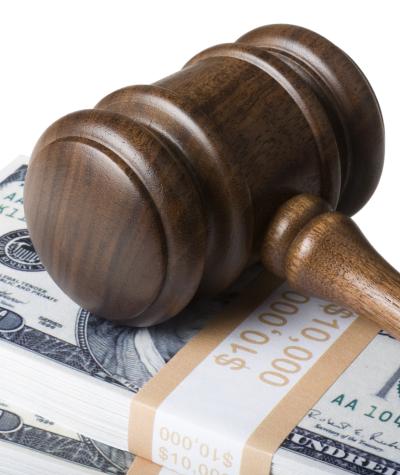This election cycle, both major party candidates have said reforming our political system is a top priority – yet both have routinely pushed the legal envelope when it comes to the laws governing money in elections.
As a nonpartisan watchdog, the Campaign Legal Center has filed complaints with the Federal Election Commission (FEC) against both candidates and their supporting super PACs, urging the FEC to take action and enforce the law against these clear-cut violations.
Perhaps Clinton and Trump assume that they can flout the law because the FEC is too dysfunctional to do anything about it. But what does it say about the state of U.S. democracy when the two candidates for the most powerful office in our country think they can ignore the law and get away with it?
Whichever candidate wins on November 8 can fix this. Five of the six FEC Commissioners are serving on expired terms, and the next president can appoint commissioners who will actually enforce the law.
Here’s a quick roundup of this election cycle’s violations by the two major party candidates:
- Clinton and Trump illegally coordinate with their super PACS: Last winter, in The Washington Post, CLC’s General Counsel Larry Noble called out “Clinton’s campaign-finance hypocrisy” by highlighting her campaign’s efforts to blow new loopholes in the laws limiting coordination with supposedly “independent” super PAC, Correct the Record.
In October, CLC filed FEC complaints against Clinton’s campaign and her super PAC (Correct the Record), and Trump’s campaign and his super PACs (Rebuilding America Now and Make America Number 1) for undermining the coordination laws.
Particularly after Citizens United, anti-coordination laws are vital to the integrity of our political system; the U.S. Supreme Court has said that unlimited campaign spending by wealthy interests can corrupt candidates unless it is totally independent of a campaign. Giving a large contribution to a super PAC that is coordinating with the Trump or Clinton campaign is the same as giving it directly to the campaign and buys the same direct access and influence over that candidate.
- Trump campaign and super PAC illegally solicit foreign funds to influence U.S. elections: It is a no-brainer that foreign nationals cannot legally spend money on U.S. elections. Yet in June, Donald Trump’s presidential campaign committee sent fundraising emails to foreign nationals – including foreign politicians – in at least Iceland, Scotland, Australia and England. CLC filed a complaint with the FEC highlighting this violation and demanding the agency send a clear message that foreign money is not allowed in U.S. elections.
In October, a British newspaper, The Telegraph, reported on its undercover investigation resulting in video of representatives of a super PAC supporting Donald Trump attempting to arrange with reporters posing as representatives of a Chinese businessman to illegally contribute $2 million to the super PAC by funneling the money through a for-profit company and two 501(c)(4) organizations. CLC filed a complaint with the FEC against the super PAC, Great America PAC.
Importantly, these schemes show how foreign money could be secretly flowing into U.S. elections, and potentially supporting candidates of either party.
- Clinton and Trump super PACs violate federal contractor ban: The law is clear that federal contractors are prohibited from making contributions to a political committee while negotiating or performing a federal contract, and a political committee is similarly prohibited from soliciting and receiving contributions from a federal contractor. CLC filed a complaint in July against a super PAC supporting Hillary Clinton, Priorities USA Action, for accepting a $200,000 contribution from a federal contractor, Suffolk Construction Company, in violation of this law. Today, CLC filed a complaint against Donald Trump’s super PAC, Rebuilding America Now, which received a $100,000 check from a private prison company, GEO Group, also in violation of the federal contractor ban.
